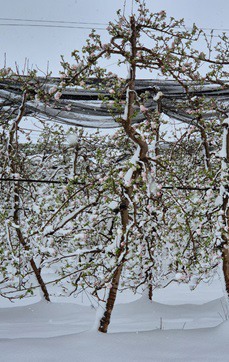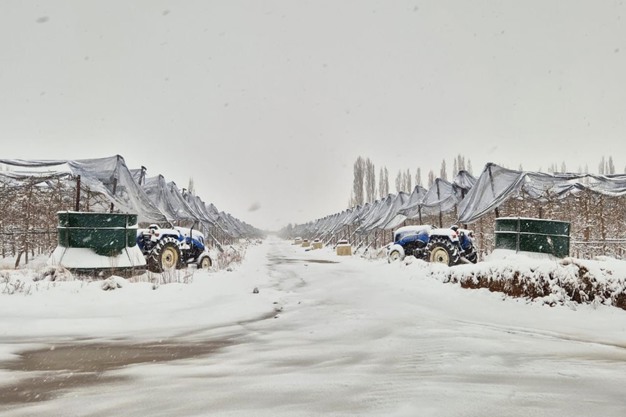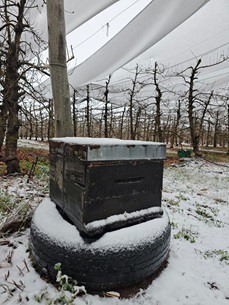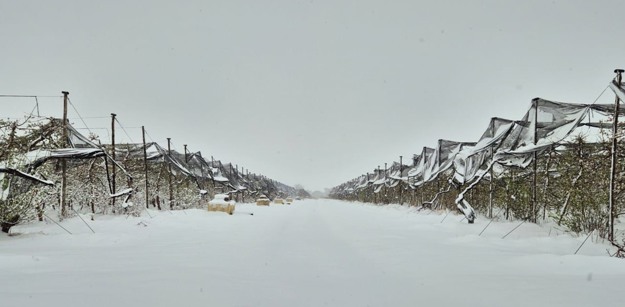 An uncharacteristically mild winter, delivering half the usual winter chill, has meant a delayed and protracted flowering in the apple orchards of the Free State. On its own, it complicates crop management but this season, it mitigated some of the risks from the intense cutoff low weather system bringing heavy snowfall just over two weeks ago.
An uncharacteristically mild winter, delivering half the usual winter chill, has meant a delayed and protracted flowering in the apple orchards of the Free State. On its own, it complicates crop management but this season, it mitigated some of the risks from the intense cutoff low weather system bringing heavy snowfall just over two weeks ago.
"We had about 16 to 20cm of snow," says Kerryn Fyvie who farms apples near Harrismith, an area in which motorists were stranded overnight on snowbound roads. "So yes, we consider it to be very heavy for us."
Last year's snowfall came five weeks later, towards the end of October. Fyvie says that the first snow of Friday evening, 20 September, was accompanied by a very cold easterly wind and the temperatures hovered above freezing point all weekend until it quickly melted when the sun came out two days later.
"The combination of moisture with snow meant we didn't actually go below zero, even though it was particularly cold. The other part is with the protracted flowering, there may well have been some damage from wind and snow but because there are delayed buds that flower later, compromised blooms can be replaced by other flowers," explains Doug Osler from Lone Tree Farms outside Fouriesburg.
He adds that uneven flowering (and potentially mixed maturity during the harvest) is definitely not ideal, and fruit thinning with fruit and flowers on the same tree is going to be a challenge. Fyvie remarks that flowering in their orchards, too, is slightly delayed. "We did not go into severe freezing temperatures, so it appears to have avoided cold damage to buds."

Harrismith apple orchards at Fyvie Farming, 22 September 2024
September weather always unpredictable
"We've been challenged on quite a few fronts, actually: the Tuesday before the snow we had a tornado going through the farm which probably caused most damage to our infrastructure," Osler says. "And when the wind came through, it came through with a lot of hail." Apple growers in the Free State know they can expect anything from September weather and deciding whether the open or close the nets, is not a simple decision. Fyvie says that luckily all their nets were still rolled up when the heavy snow fell, so there was no significant net or structure damage on their farm.
Apple growers in the Free State know they can expect anything from September weather and deciding whether the open or close the nets, is not a simple decision. Fyvie says that luckily all their nets were still rolled up when the heavy snow fell, so there was no significant net or structure damage on their farm.
Right: a beehive in a snowy Fouriesburg apple orchard
"In September we play a bit of Russian roulette with the nets," Osler says. "You tend to leave the nets open for pollination but you also know you can get hail so you want to close the nets and then you get snow and you want the nets open again."
Opening and closing the nets over the hundred hectares of apples on their farm – by hand – is a three week-long operation, he says.
The snow was accompanied by decent rain, after a previous season that was their driest on record. "We've now had over 50mm rain for September, much more than our longterm average for the month."
For more information:
Kerryn Fyvie
Fyvie Farming
www.fyviefarming.co.za
Doug Osler
Lone Tree Farms
https://www.lonetreefarms.co.za/
